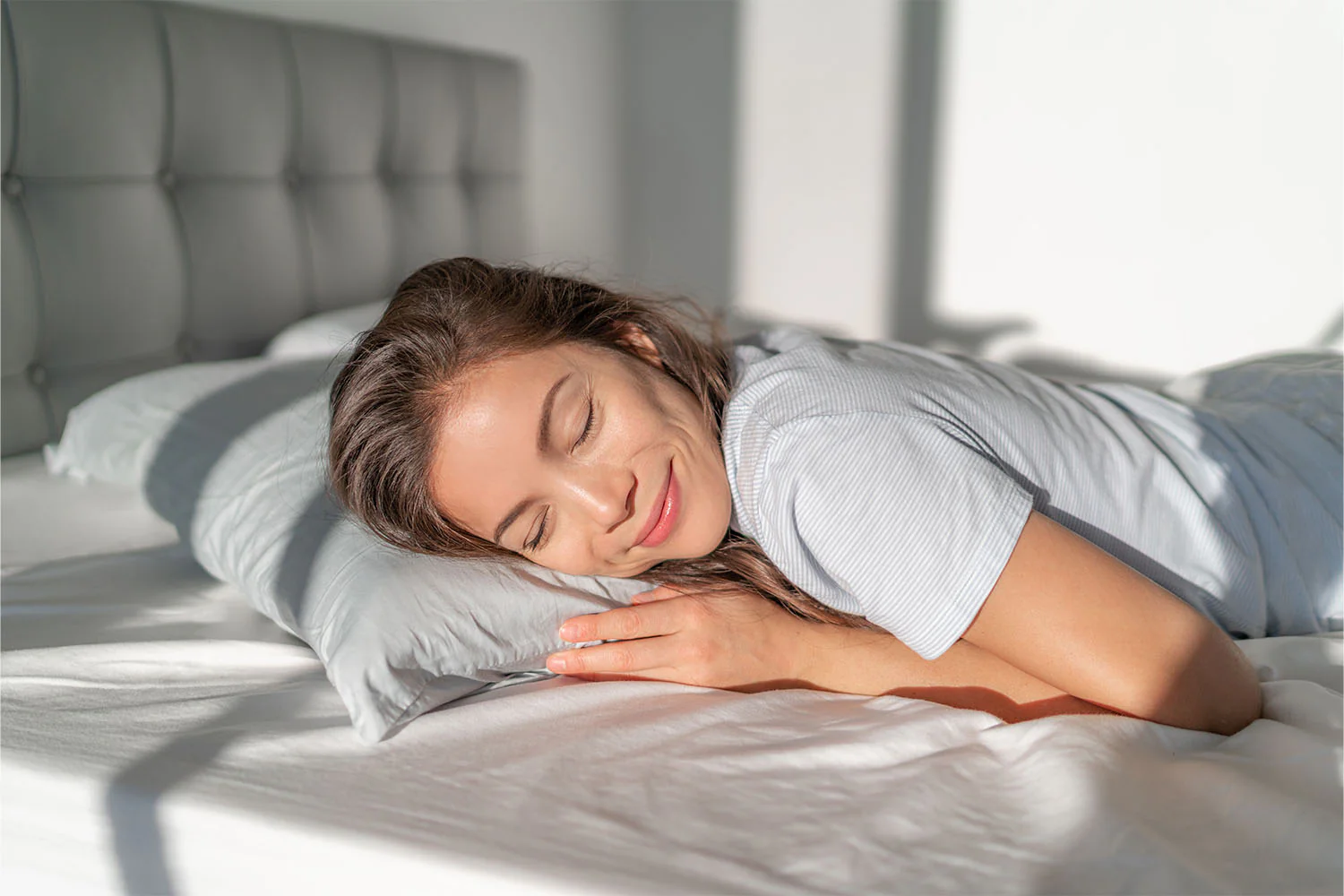Sleep is one of our body’s most essential needs. We spend a third of our lives sleeping, and it’s not a waste of time. Healthy sleep gives us energy, helps the brain function better, and supports overall health. But is 8 hours really necessary? Why is sleep deprivation so harmful? Let’s find out!
How Healthy Sleep Affects Your Health
When we sleep, our body doesn’t just rest. It actively works, repairing cells, strengthening immunity, and maintaining vital functions. Here’s what healthy sleep does for us:
- Body Recovery. While we rest, the body “repairs” itself. Cells regenerate, muscles relax, and organs work in a calm mode. Without quality sleep, this process is disrupted, and the body wears out faster.
- Immunity. Healthy sleep strengthens the immune system. People who sleep less than 6 hours a night get sick more often. During sleep, special proteins—cytokines—are produced. They help fight inflammation and viruses.
- Heart and Blood Vessels. Lack of sleep increases the risk of stroke, heart attack, and high blood pressure. When we sleep, heart rate slows, and blood pressure drops, allowing the heart to rest. If you don’t get enough sleep, your heart works under constant strain.
Healthy Sleep and the Brain: Cognitive Functions and Mental Health
The brain is like a computer, and healthy sleep is its reboot. Getting enough sleep makes the brain work faster, improves memory, and reduces stress. Here’s how sleep benefits us:
- Memory and Learning. Want to remember things better? Sleep! During sleep, the brain sorts all the information received throughout the day, discarding the unnecessary and storing the important.
- Emotional Balance. Sleep deprivation leads to bad moods, nervousness, and even depression. Healthy sleep helps regulate emotions. People who don’t get enough sleep experience more anxiety and irritability.
- Stress Reduction. Healthy sleep is a natural antidepressant. It helps the body cope with stress and maintain hormonal balance. If you sleep too little, cortisol (the stress hormone) levels rise, leading to fatigue and health problems.
If you want to be energetic, calm, and smart—get at least 8 hours of sleep!

How Healthy Sleep Affects Productivity and Physical Condition
Healthy sleep equals energy. If you sleep well, it’s easier to work, think, and even exercise:
- More Strength and Energy. While we sleep, the body restores energy reserves. If you don’t sleep enough, you feel sluggish and tired. Even 10 cups of coffee won’t help if you’re sleep-deprived.
- Better Physical Fitness. Athletes know that good sleep is the key to success. Muscles grow and recover at night. Sleeping less than 6 hours weakens your strength and reduces workout effectiveness.
- Weight Control. Sleep deprivation is the enemy of a slim figure. When we don’t get enough sleep, the body craves more food—especially unhealthy options. This happens because of hormones: ghrelin (the hunger hormone) rises, while leptin (the satiety hormone) decreases.
Healthy sleep is the key to strength, endurance, and a fit body.
What Do Scientific Studies Say About 8 Hours of Sleep?
We’ve all heard that healthy sleep should last 8 hours. But why exactly 8? Is this a myth or science? Scientists have studied thousands of people and found that the optimal sleep duration is between 7 and 9 hours. Less than 6 hours becomes dangerous.
Of course, every body is unique. Some people need 7 hours, while others need 9. The main thing is to wake up feeling refreshed. If 6 hours of sleep leave you feeling exhausted, you need more rest.
What happens with chronic sleep deprivation? If you sleep only 4–5 hours for several nights in a row, your brain starts working slower. Your reaction time decreases, concentration drops, and your mood worsens. After a week of this, your risk of illness skyrockets.
8 hours is a general guideline. But listen to your body!

The Consequences of Chronic Sleep Deprivation: Why Healthy Sleep Matters
Sleep deprivation isn’t just about feeling tired. It’s a real blow to your health. Here’s what happens when you ignore healthy sleep:
- Chronic Diseases. Regular sleep deprivation increases the risk of diabetes, heart attacks, and even cancer. The body weakens, and immunity declines.
- Premature Aging. Your skin suffers too. Lack of sleep leads to wrinkles, a dull complexion, and dark circles under the eyes. At night, collagen is produced, keeping your skin youthful. Without sleep, this process is disrupted.
- Shortened Lifespan. Studies show that people who consistently sleep less than 6 hours live shorter lives. The body doesn’t have time to recover, and it wears out faster.
How to Ensure Healthy Sleep?
We now know that healthy sleep is crucial. But what if you have trouble falling asleep? Here are some tips:
- Stick to a Sleep Schedule. Go to bed and wake up at the same time—even on weekends! This helps your body develop a consistent sleep pattern.
- Limit Screen Time Before Bed. Phones and computers emit blue light, which tricks the brain into thinking it’s still daytime. Turn off screens at least an hour before bed.
- Darkness and Silence. Melatonin (the sleep hormone) is produced in darkness. Close the curtains, turn off the lights, and use earplugs if noise bothers you.
- Physical Activity. Regular exercise helps you fall asleep faster. But don’t work out too late in the evening—it can disrupt your sleep cycle.
- Light Dinner. Avoid heavy meals before bed. Otherwise, your body will focus on digestion instead of resting.
Why You Need Healthy Sleep and How to Achieve It – Video
Healthy sleep is important, but how do you make it happen? Watch the video:
Conclusion
Healthy sleep is a superpower. It makes us healthier, more energetic, and happier. Not getting enough sleep? Your body gets exhausted, productivity drops and diseases creep closer. Sleeping enough? You feel better, look younger, and work more efficiently.
Frequently Asked Questions
Healthy sleep means falling asleep quickly and sleeping without interruptions. It should be deep and restful. After much sleep, you feel refreshed and energetic.
The best sleep is at night, from 10:00 PM to 6:00 AM. During this time, the body recovers most effectively, producing essential health-boosting hormones.
For adults, healthy sleep should last 7–9 hours. Children and teenagers need more sleep. Less than 6 hours is harmful to the body.









